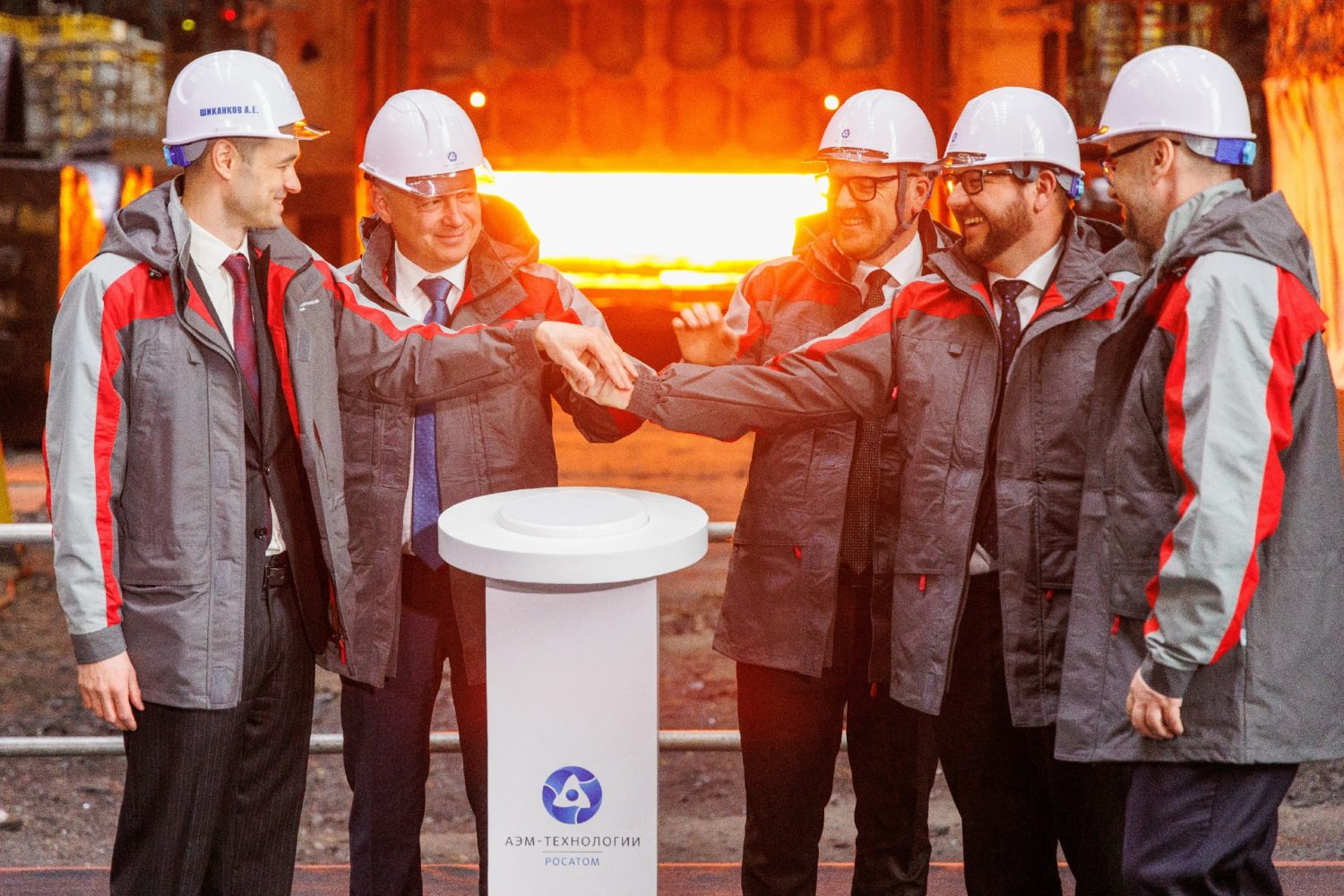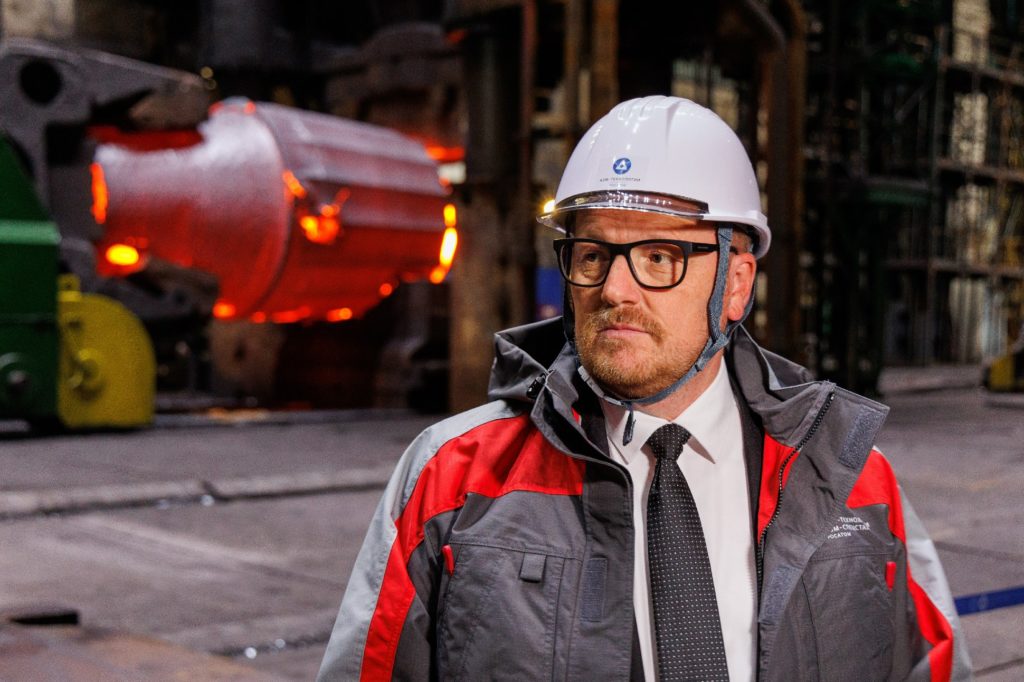
From Paks to Saint Petersburg
back to contentsRosatom’s steelmakers proceeded with the manufacturing of a reactor pressure vessel for Hungary’s Paks II NPP being built to the latest Russian design. The production was kicked off in late April by the top managers of the Russian nuclear corporation, Paks II Chairman and CEO Gergely Jákli, and Paks city mayor Péter Szabó. The latter spoke about the new impetus for development received by the host region.
The production process starts with the billets that are used to manufacture VVER 1200 reactor shells. The shells are essential structural elements of the reactor pressure vessel (RPV). These are empty cylinders that are welded together. RPV parts are manufactured at Saint Petersburg-based AEM SpetsStal (part of Rosatom) operating one of the largest automated forging facilities in Europe.
“We are working to ensure that the new power units at Paks will be connected to the grid by the early 2030s. The work is simultaneously underway at the construction site in Hungary and thousands of kilometers away from it, in Saint Petersburg,” Gergely Jákli explained.
According to AtomStroyExport (ASE) Vice President and Paks II construction project director Vitaly Polyanin, installation of the impervious blanket has been completed at the construction site while the soil stabilization operations are continuing. “We plan to enter the ‘first concrete’ phase, which is one of the milestones in any nuclear construction project, by the end of 2024,” Vitaly Polyanin said. He noted that production of the primary circuit systems for the nuclear island was scheduled for 2028 and 2029 when the main construction works would be completed.

Paks heyday
The Paks NPP celebrated its 40th anniversary in 2023. Its four units with VVER 400 reactors account for 49 % of electricity generated in Hungary. The Hungarian government plans to increase the share of nuclear in the national energy mix to 70 % by the early 2030s. Paks mayor Péter Szabó told the Strana Rosatom newspaper that the level of acceptance and approval of nuclear power in the plant’s host region (Tolna County) was extremely high. In Paks, the figure reaches 90 % and decreases with distance from the city, but never below 70 %. “People realize that nuclear energy is clean and safe. It is the reliable and accident-free operation of our nuclear station that has played a big role in it. Besides, access to electricity means a lot to people, which cannot be guaranteed without nuclear generation in the present-day Hungary,” Péter Szabó pointed out.
The mayor of Paks said the nuclear power plant was the primary employer both in the entire Tolna County and neighboring regions. In the 18,000 strong city of Paks, key economic processes and employment are tied to the nuclear plant, not least because many companies based in the city specialize in the repair and maintenance of systems and equipment and providing other services for the nuclear power plant.
The Paks II NPP will increase the share of nuclear professionals in the local workforce, Péter Szabó is confident. “Construction workers and engineers will arrive soon. New jobs are available as excavation work is in full swing. So, I can say with full confidence that the nuclear station will remain the main employer for my fellow countrymen for decades to come,” says Péter Szabó.

According to the mayor, the construction project will bring 5,000 to 6,000 people to the city. “As the head of the local government, I have to create decent working, living and leisure conditions for them,” says Péter Szabó. Sports facilities are being improved in the city, with a new swimming pool planned to be commissioned. The local community center is being repaired. A school for the children of Russian-speaking engineers employed in the nuclear construction project will soon open its doors. “In general, nuclear workers are welcome — please come and work here,” Mayor Péter Szabó says.




